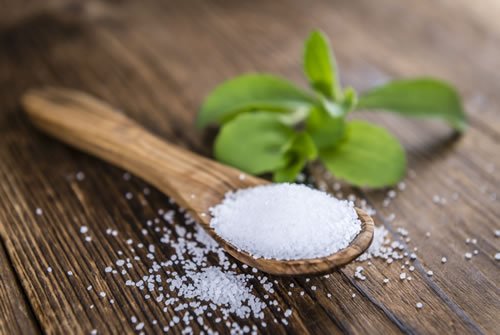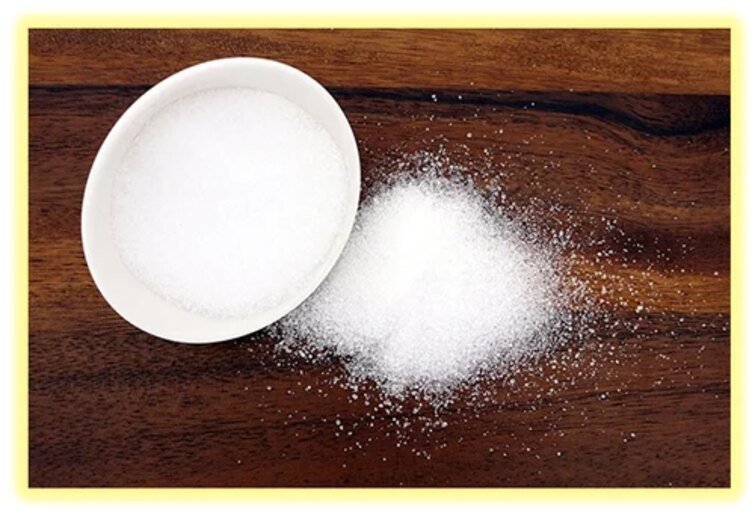In the realm of beverages, sweetness often takes center stage, be it in soda, smoothies, or coffee. People strive to enhance the taste of their favorite drinks by balancing bitterness with sweet additives. While traditional sugars like fructose, sucrose, dextrose, honey, and corn syrup remain the go-to choices for sweetening, artificial alternatives have also gained prominence. One such alternative is erythritol, among the most commonly used artificial sweeteners, as recognized by the Cleveland Clinic.
What is erythritol?

Erythritol is a widely used sugar substitute available in both powder and liquid forms, frequently employed in various foods and beverages. Categorized as a sugar alcohol, along with maltitol, sorbitol, and xylitol, erythritol shares a chemical structure with sugar. Despite their name, sugar alcohols bear no resemblance to either sugar or alcohol.
While erythritol naturally occurs in certain fruits and fermented foods, the version used as a sugar substitute is typically produced synthetically. This process involves fermenting glucose sourced from substances like wheat or corn starch, as explained by Jen Messer, a nutrition consultant and registered dietitian at Jen Messer Nutrition. Erythritol also exists in trace amounts within our bodies as part of normal metabolism, but commercial erythritol doses used in packaged foods significantly exceed these natural levels, notes John DiBiase, MD, a physician in the Division of Gastroenterology and Hepatology at Mayo Clinic in Arizona.
Is erythritol beneficial or detrimental to health?

Erythritol not only serves as an effective sweetener but is sometimes marketed as a weight loss aid, although experts caution against overstated or misleading claims in this regard. Nevertheless, erythritol offers certain advantages over conventional sugar.
Messer points out several benefits, including its minimal impact on blood sugar and insulin levels, making it suitable for individuals with diabetes or those managing their blood sugar. Additionally, it does not contribute to tooth decay because oral bacteria cannot metabolize it effectively. Erythritol also maintains its sweetness and stability at high temperatures, making it a preferred choice among sugar alcohols for baking and cooking. Furthermore, it boasts significantly lower calorie content compared to regular sugar, containing about 0.2 calories per gram, roughly 5% of the calories found in an equivalent amount of sugar. This characteristic can be advantageous for individuals aiming to manage their body weight and reduce caloric intake.
Is erythritol safer than sugar?

While erythritol offers several advantages, it may not necessarily surpass sugar in all aspects. It is only approximately 60-70% as sweet as sugar, as noted by Messer. Moreover, although considered safe for consumption, erythritol can trigger various adverse side effects with frequent use.
According to Lisa Young, Ph.D., RDN, an adjunct professor of nutrition at New York University and author of “Finally Full, Finally Slim,” excessive consumption of erythritol can lead to digestive issues such as bloating, gas, and diarrhea, albeit with individual variations. In some cases, especially among those sensitive to sugar alcohols, high consumption can induce severe nausea, potentially resulting in dehydration.
Due to these potential health concerns and others, Young advises caution, particularly for individuals with gastrointestinal issues, and DiBiase echoes the importance of moderation when consuming foods containing erythritol.
All in all
erythritol offers a compelling alternative to traditional sugar, with its potential benefits in blood sugar management, dental health, and calorie-conscious eating. However, it’s essential to use erythritol in moderation and be aware of individual sensitivities to sugar alcohol. As with any dietary choice, balance and informed decision-making are key. By understanding the nuances of erythritol, consumers can make well-informed choices to meet their specific dietary needs and preferences while enjoying the sweetness they crave.
Delve into the world of erythritol, a versatile sugar substitute widely used in various foods and beverages. This blog explores its origins, advantages, and potential drawbacks, shedding light on its role in promoting healthier sweetening options. By understanding erythritol’s unique properties, consumers can make informed choices that align with their dietary goals and preferences while satisfying their sweet cravings.
Click here: https://truereviewmagazine.com/










